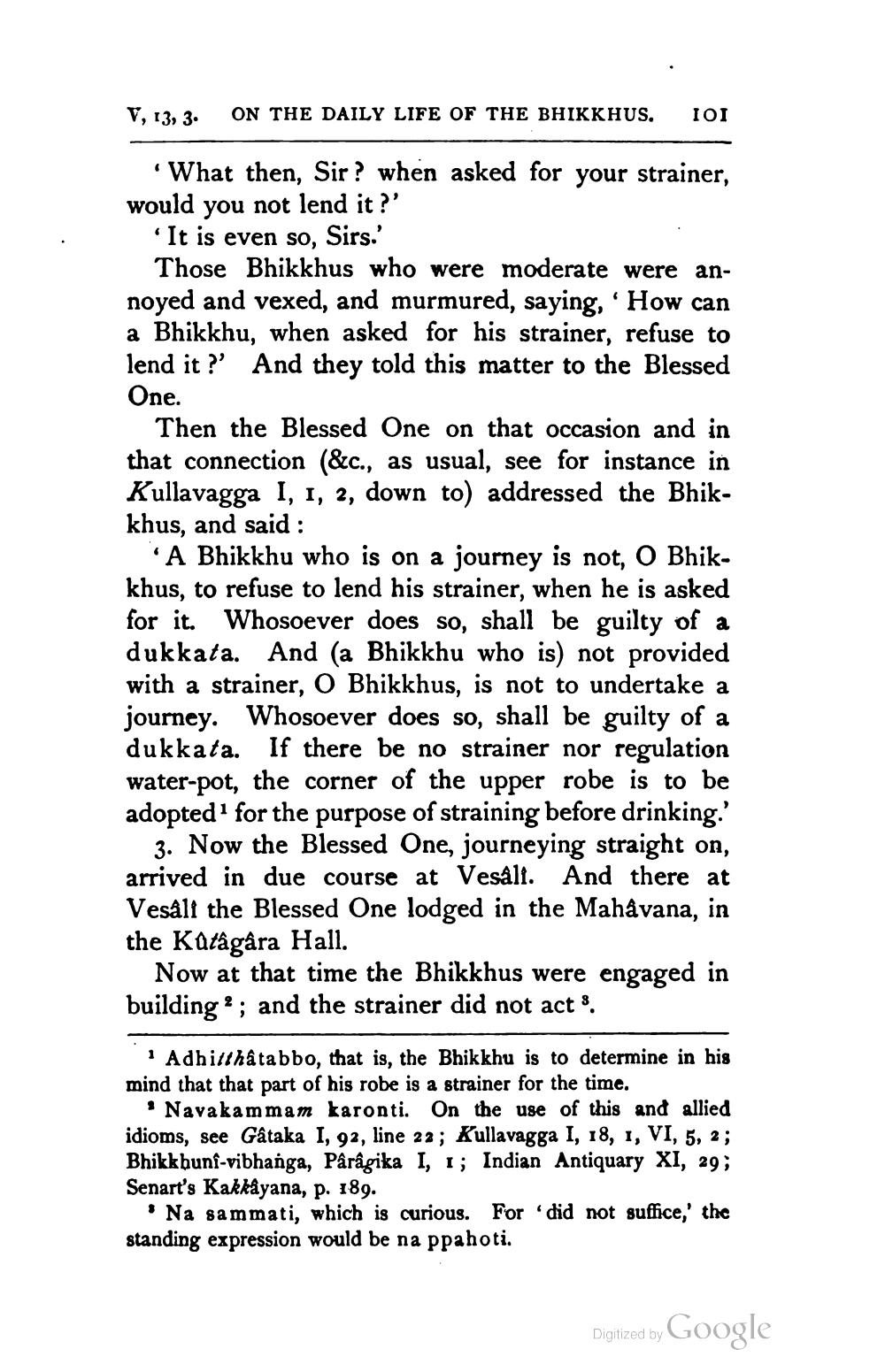________________
V, 13, 3.
'What then, Sir? when asked for your strainer, would you not lend it?'
'It is even so, Sirs.'
Those Bhikkhus who were moderate were annoyed and vexed, and murmured, saying,' How can a Bhikkhu, when asked for his strainer, refuse to lend it?' And they told this matter to the Blessed One.
ON THE DAILY LIFE OF THE BHIKKHUS. IOI
Then the Blessed One on that occasion and in that connection (&c., as usual, see for instance in Kullavagga I, 1, 2, down to) addressed the Bhikkhus, and said:
'A Bhikkhu who is on a journey is not, O Bhikkhus, to refuse to lend his strainer, when he is asked for it. Whosoever does so, shall be guilty of a dukkata. And (a Bhikkhu who is) not provided with a strainer, O Bhikkhus, is not to undertake a journey. Whosoever does so, shall be guilty of a dukkata. If there be no strainer nor regulation water-pot, the corner of the upper robe is to be adopted1 for the purpose of straining before drinking.'
3. Now the Blessed One, journeying straight on, arrived in due course at Vesâli. And there at Vesålt the Blessed One lodged in the Mahâvana, in the Kûtâgâra Hall.
Now at that time the Bhikkhus were engaged in building; and the strainer did not act 3.
1 Adhit hâtabbo, that is, the Bhikkhu is to determine in his mind that that part of his robe is a strainer for the time.
Navakammam karonti. On the use of this and allied idioms, see Gâtaka I, 92, line 22; Kullavagga I, 18, 1, VI, 5, 2; Bhikkhuni-vibhanga, Pârâgika I, 1; Indian Antiquary XI, 29; Senart's Kakkâyana, p. 189.
Na sammati, which is curious. For 'did not suffice,' the standing expression would be na ppahoti.
Digitized by Google




